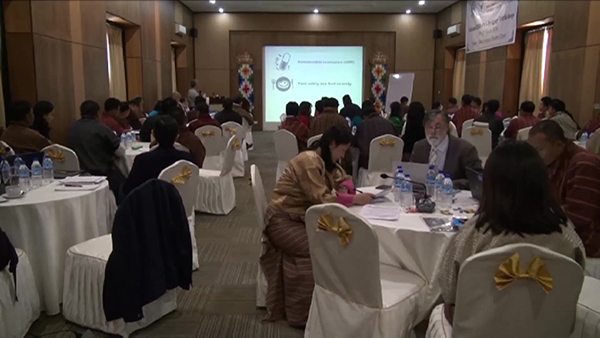 Every year, many people around the world get sick from diseases spread between animals and humans.
Every year, many people around the world get sick from diseases spread between animals and humans.
These are known as zoonotic diseases, which are infectious in nature. And because these diseases can cause sickness and death in people, officials from public and animal health sectors in Bhutan have come together to combat zoonotic diseases through ‘One Health Approach.’
The stakeholders for this movement include veterinarians, medical doctors, and food security officials and they recently met in Paro to reduce gaps and better coordinate among themselves to keep zoonotic diseases at bay.
“There are issues like outbreak of Avian Influenza and it happens in poultry. But the disease may be transmissible to human. Our main objective is to how to help human health and animal health sector to test the functional status of their coordination and communication among themselves,” said Dr. Gyanendra Gongal, Technical Officer, World Health Emergency Programme.
He also said: “Stakeholders have met to identify what are the ways forward to improve preparedness and response to emerging and re-emerging diseases.”
Some of the World’s worst diseases such as Ebola and AIDS started in animal jumped the hurdle of species to enter humans and then get passed from person to person. These are called zoonotic or animal-origin infectious diseases.
Human behaviors such as destruction of forest and import of meats and foods unleash zoonotic infection disease.
One Health Approach is an integrative effort or movement of multiple sectors working locally, nationally, and globally to achieve best health for humans, animals, and the environment.
Bhutan has also developed five year framework from 2017-2021, outlining collaborative mechanisms amongst stakeholders to prevent, detect and control zoonotic diseases.








